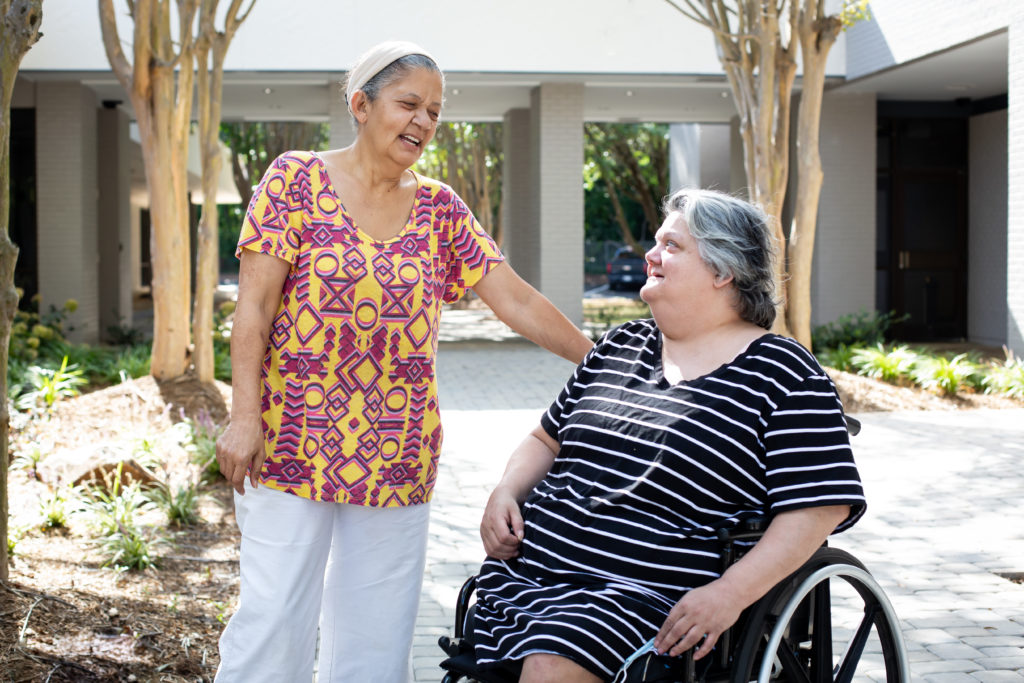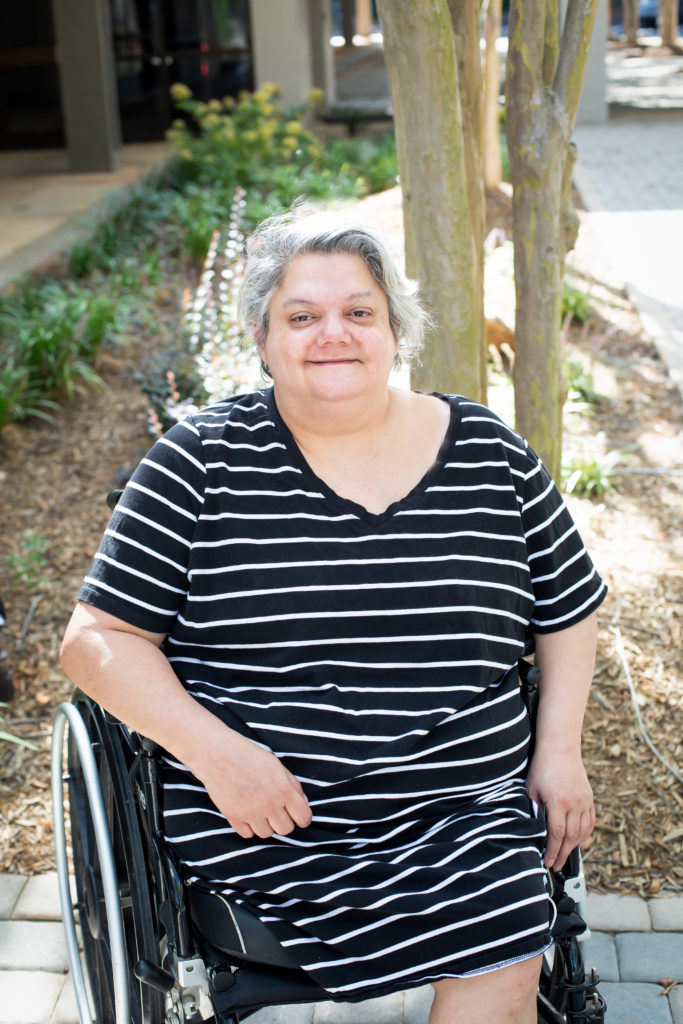Wendy affectionately calls her older sister, Melody, “the manager”. Melody laughs at the nickname but graciously takes on the role, balancing her job at a local restaurant, managing the daily operations of their home, and caring for her younger sister. The sisters have come to rely on each other but are quick to recognize that there are some things for which they need support.

It was Melody who suggested Wendy contact the Advocacy Center. Staff attorneys negotiated a payment plan for Melody with the county when she was facing foreclosure from back property taxes on her parents’ estate. Then in the first year of COVID, the Advocacy Center helped Melody access unemployment insurance and food stamps. She knew firsthand what a lifeline public benefits could provide.
Heeding her sister’s suggestion, Wendy connected with Cara Meyer, a Health Insurance Navigator, who helped her enroll in Food and Nutrition Services (food stamps) and Medicaid for the Disabled, health care coverage that proved crucial when Wendy’s health condition deteriorated months later.
Wendy spent three months in the hospital suffering from complications related to congestive heart failure and had her right leg amputated after developing blood clots.

“When I came home from the hospital, I knew that I would need someone to help me learn how to maneuver with one leg, how to shower, [how to take care of myself],” Wendy says, “I was in a deep depression and needed help.”
Living with Melody and her husband, Wendy was grateful for everything her older sister did. But Melody was the primary financial support for the family and Wendy knew it was taking a toll on her. Wendy was unable to work because of her disability and her disability benefits were terminated years prior.
“I physically could not get to the [Social Security Administration] office. When I called, they said they could not take my message so I kept trying to call any number I could. I couldn’t reach anyone. Julieanne was able to get in touch with the right people.”
Julieanne Taylor, Senior Attorney and Public Benefits Legal Services Unit Manager, worked with Wendy to successfully appeal her Social Security Insurance (SSI) denial. Wendy was granted back benefits and ongoing payments, providing a stable source of income for Wendy that allowed her to take care of her own personal needs and contribute to the household.
Wendy and Melody’s story is reflected in many of our clients’ experiences. Our clients often face multiple civil legal issues but lack the financial resources to address them. As with Wendy and Melody, our clients’ needs are not limited to just health care, or public benefits, or property taxes, but more often a combination of several, which means we always need to look at the bigger picture.
“[Each time your staff would address a problem] they would ask if there was anything else they could do to help. Your staff [treated us with dignity] and that meant a lot,” says Melody.
Julieanne, Cara, and Advocacy Center staff worked together to address Wendy and Melody’s problems in a holistic way, creating economic security, accessing critical health care, and ensuring longer-term stability.
When asked to describe the impact of their experience with the Advocacy Center, Melody struggled to find the words:
“I don’t think they’ve invented a word that’s big enough to say how wonderful this place is.”
Your support of the Access to Justice Campaign ensures we can fight for neighbors like Wendy and Melody, facing civil legal issues impacting their safety, security, and stability. Donate today to help us keep up the fight.